Scottish Tory leader Douglas Ross has suggested robots can help to ease labour shortages in the seafood processing sector.
Mr Ross heard about some of the industry’s current challenges during a visit to Fraserburgh earlier today.
He was shown around the facilities of International Fish Canners (IFC), where he met some of its top bosses as well as leading figures from across the Scottish catch sector.
Some top filleters are making good wages. We need to do more to promote the industry and improve people’s perceptions of it.”
Douglas Ross, leader, Scottish Conservative Party
The Moray MP and Highlands and Islands MSP told The Press and Journal spiralling energy costs and recruitment difficulties were among the most pressing issues he heard about.
He pledged to raise the concerns about fast-rising costs at a meeting with Chancellor Jeremy Hunt next week, adding: “We need to do everything we can to support businesses.”
Mr Ross was accompanied on his visit by Banff and Buchan Tory MP David Duguid.
Is Brexit to blame?
Asked if Brexit was largely to blame for labour shortages in the sector, Mr Ross insisted there is no one “over-riding” factor behind processors’ ongoing struggle to recruit.
And he highlighted how the sector – which has for years relied on migrant workers to fill roles local people don’t want – still employs a “significant proportion” of staff from around the EU.
Covid exacerbated existing difficulties, he said, adding: “Many people went back home to be with their families and never returned.”
More effort needs to be put in to promoting career opportunities in the sector, he said.
He continued: “It is not seen as particularly attractive work but some top filleters are making good wages.
“We need to do more to promote the industry and improve people’s perceptions of it.”
Automation may help to relieve some of the pressure of workforce shortages, Mr Ross said.
He stressed he did not mean replacing people’s jobs with robots but rather using technology to help plug some of the gaps.
There is plenty of locally caught fish and the physical capacity to process it, so the labour shortages are “an issue we need to resolve” to make the most of a “huge opportunity”, he said.
IFC – founded in 1883 – employs 850 people across businesses including International Fish Canners (Scotland), Nor-sea Foods, Nolan Seafoods (UK), D&G Nolan and J Charles.
Workers from overseas
Co-owner and director Francis Clark said the vast majority of the group’s workforce, about 75%, were from overseas.
Mr Ross was left in no doubt about the recruitment challenge, Mr Clark said, adding: “‘We need to make it easier to bring people in from abroad.
“We are having to turn away business because of this. It’s a crazy situation.
In Fraserburgh this morning with @david_duguid meeting with @sff_uk & @spfa_uk and touring the UK’s only fish canner @CannedfishUK.
✅ The UK Government is investing £100m to modernise the sector and prepare it to take advantage of expanding catch quota. pic.twitter.com/OUJsRmuQKG
— Douglas Ross MP MSP (@Douglas4Moray) February 13, 2023
“And it’s not just us – this is affecting all manufacturing in Scotland.
“We’re desperately trying to get more people in but it’s hard. These people would be paying taxes so the whole country would benefit.”
Mr Clark said the skyrocketing cost-of-doing business was heaping on more pressure.
We’re desperately trying to get more people in but it’s hard.”
Francis Clark, co-owner and director, International Fish Canners
Scottish Fishermen’s Federation chief executive Elspeth Macdonald told the visiting politicians the catch sector faces growing competition in the seas around Scotland.
Plans for more offshore wind farms and Highly Protected Marine Areas threaten catch opportunities, Ms Macdonald said. adding: “The fishing industry needs the support of all parliamentarians to ensure our fleet remains successful and secure for the future.”
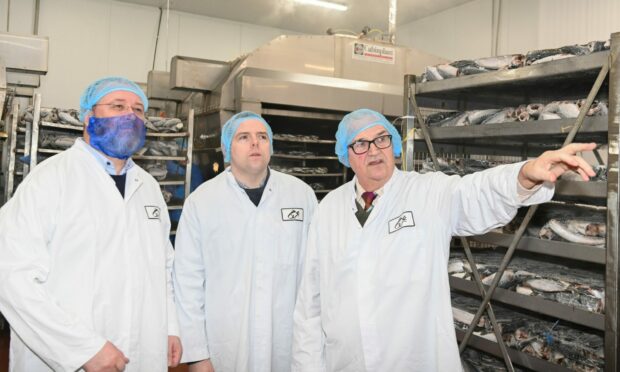
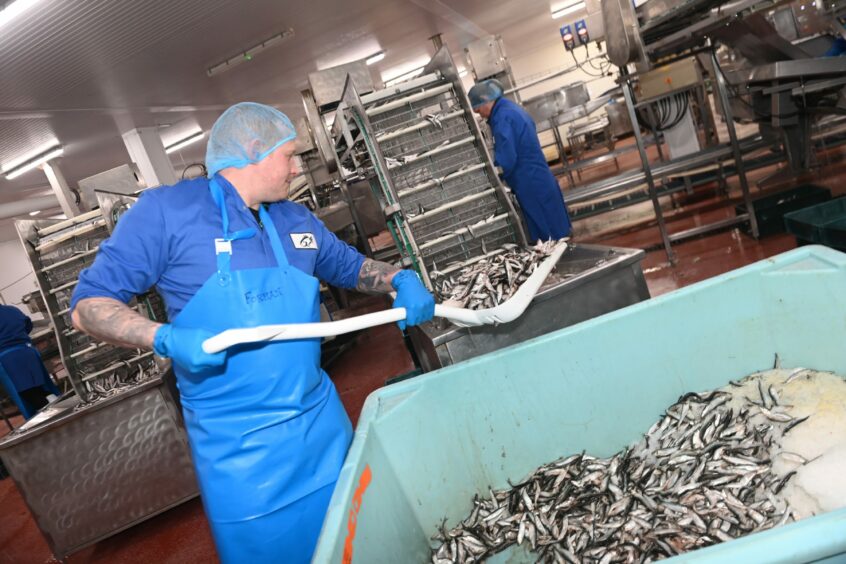
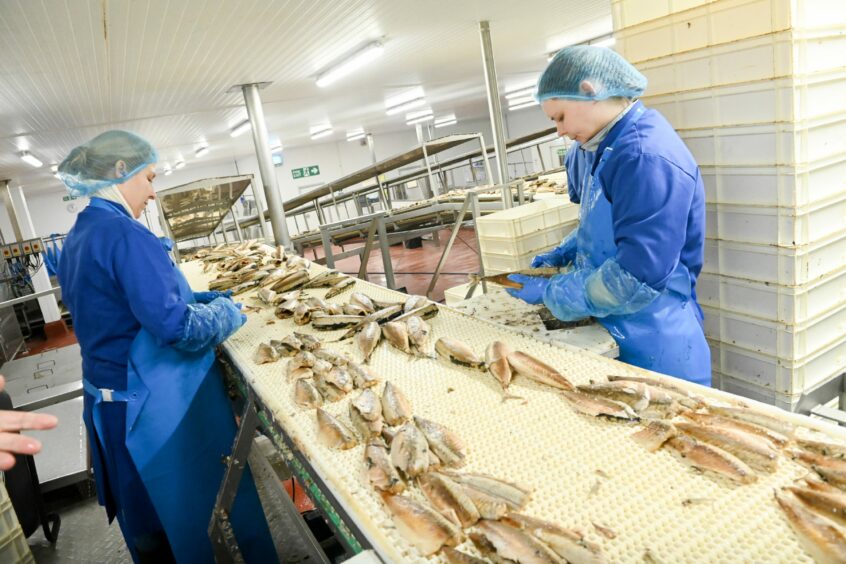
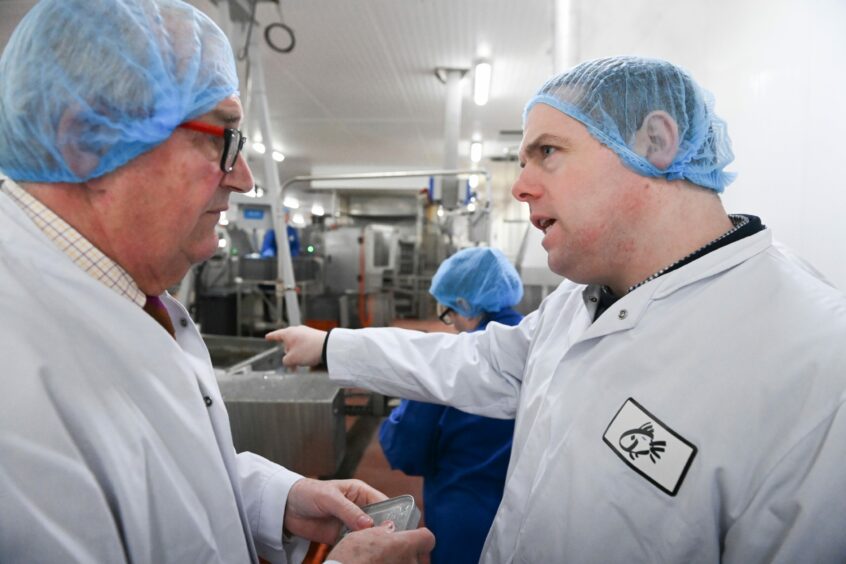
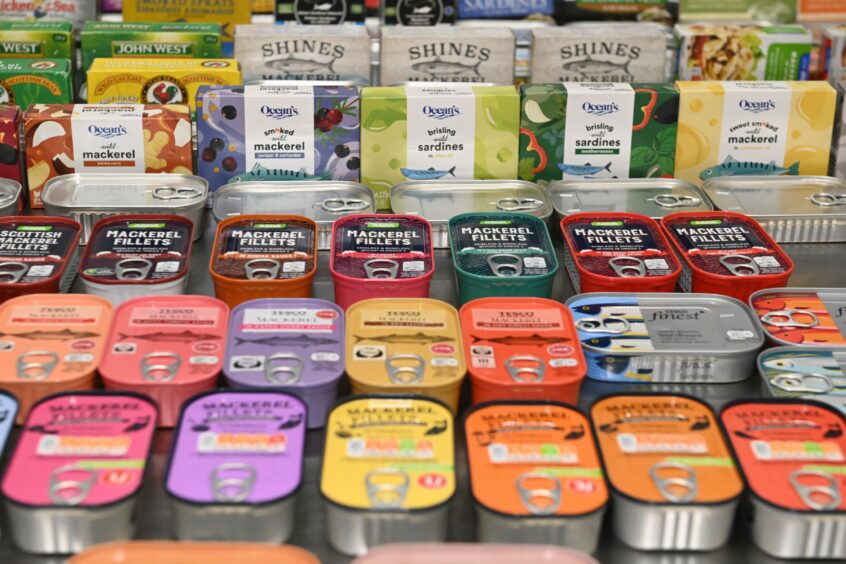
Conversation